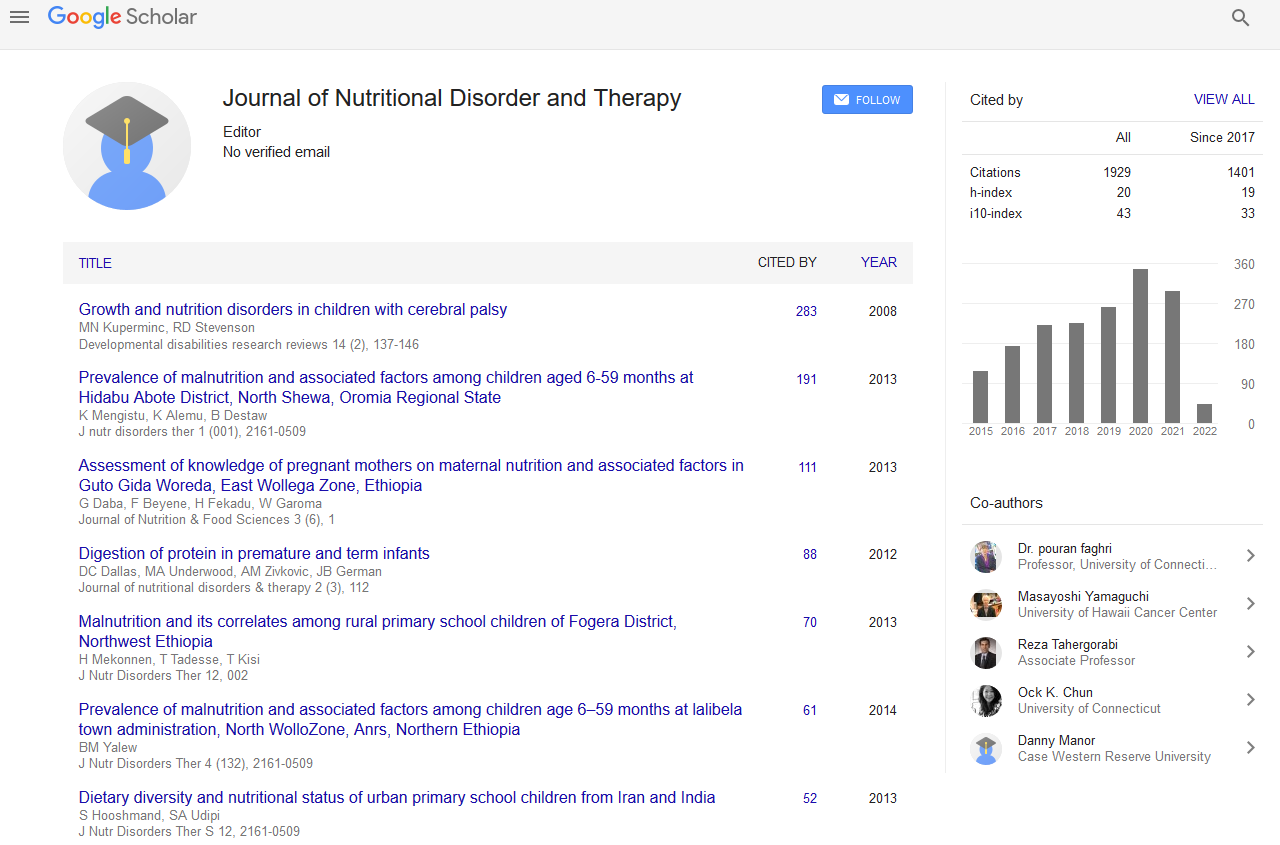Indexed In
- Open J Gate
- Genamics JournalSeek
- Academic Keys
- JournalTOCs
- Ulrich's Periodicals Directory
- RefSeek
- Hamdard University
- EBSCO A-Z
- OCLC- WorldCat
- Publons
- Geneva Foundation for Medical Education and Research
- Euro Pub
Useful Links
Share This Page
Journal Flyer

Open Access Journals
- Agri and Aquaculture
- Biochemistry
- Bioinformatics & Systems Biology
- Business & Management
- Chemistry
- Clinical Sciences
- Engineering
- Food & Nutrition
- General Science
- Genetics & Molecular Biology
- Immunology & Microbiology
- Medical Sciences
- Neuroscience & Psychology
- Nursing & Health Care
- Pharmaceutical Sciences
Abstract
Impact of Nutritional Support in Patients with Gastrointestinal Malignancies - A Review
Dobrila-Dintinjana R, Radić M, Dintinjana M, Redzović A, Vukelić J, M Zelic, Vanis N and Trivanović D
Cancer Cachexia-Anorexia Syndrome (CACS) is a common and often underdiagnosed syndrome in cancer population. If undiagnosed, this initially reversible syndrome leads to deterioration and is direct cause of death in 20% of cancer patients. Oppositely, with timely diagnosis, nutritional counseling can help to slow the progression and positively influence on quality of life, tolerance to chemotherapy with ultimate goal of prolonging patient’s life. Colorectal and pancreatic cancers are very common tumors type worldwide. The prognosis for the survival in pancreatic cancer is poor as in colorectal after disease progression. Cancer anorexia-cachexia syndrome is highly prevalent among patients with colorectal and pancreatic cancer, and has a large impact on morbidity and mortality, and on patient quality of life. The etiology of primary CACS appears to be related to the pathological loss of inhibitory control of catabolic pathways, whose increased activities are not counterbalanced by the increased central and peripheral anabolic drive. Secondary CACS (related to gastrointestinal obstruction, vomiting due to chemotherapy etc.) is contributing to bad patient’s condition. As a result of being complex and influencing a great number of metabolic pathways, cancer cachexia can be treated in multimodal manner. In this review we are presenting most promising targets and current opinions in ways to treat cachexia and our results with nutritional supplementation in colorectal and pancreatic cancer patients.


